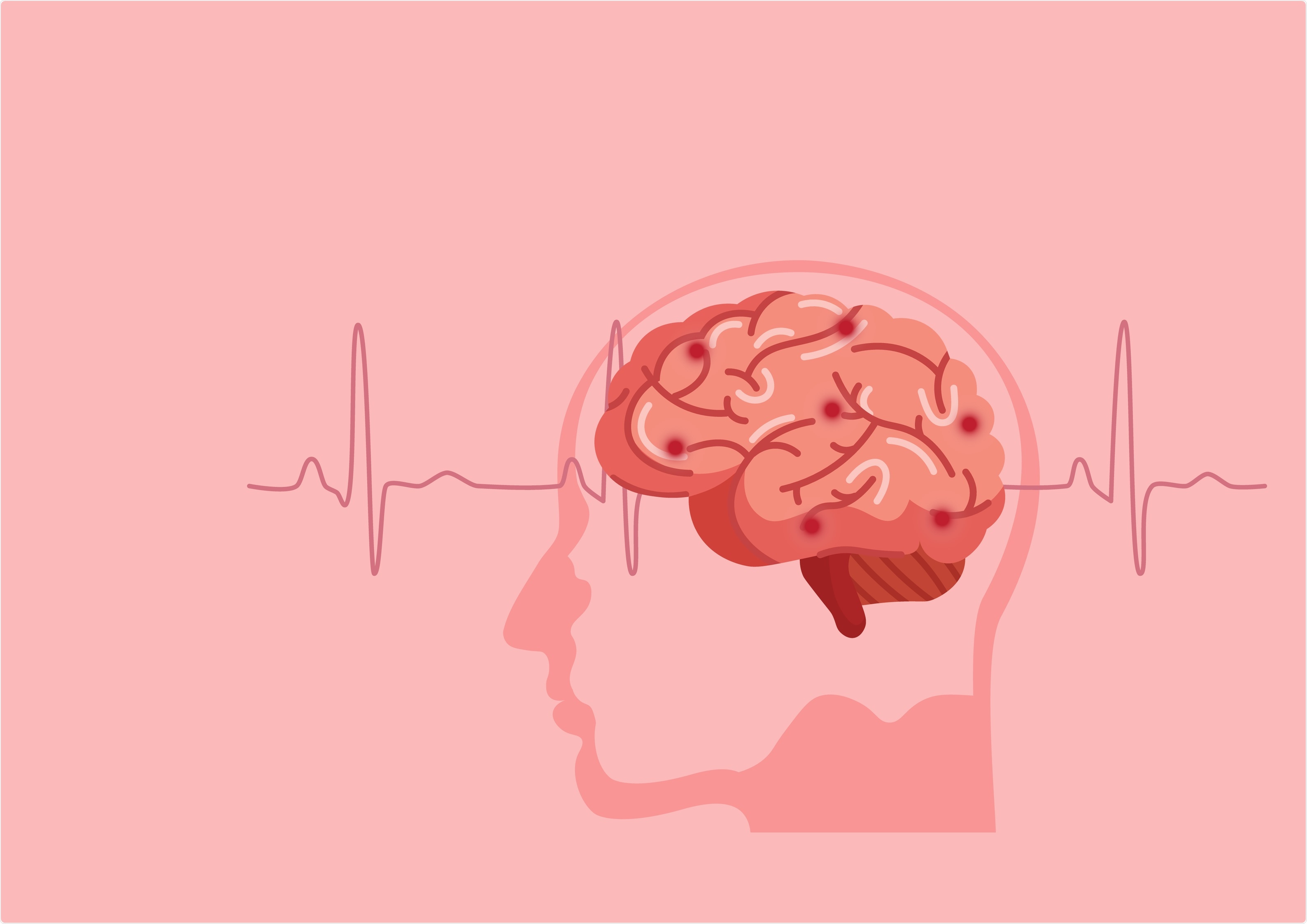A recent study conducted at the Cleveland Clinic demonstrates the impact of diets that are high in choline, which is often found in high quantities in red meat and egg yolks, and trimethylamine on increasing stroke severity and functional deficits in a murine model.

Stroke. Image Credit: Piyaphat_Detbun/Shutterstock.com
What is TMAO?
Choline, betaine, and L-carnitine are all abundant compounds that can be found in red meat and egg yolk. After the consumption of these foods, choline, betaine, and L-carnitine are metabolized by the gut bacteria to trimethylamine (TMA). TMA is then rapidly absorbed into the bloodstream and oxidized to trimethylamine-N-oxide (TMAO) by flavin-containing monooxygenase-3. Eventually, TMAO will be secreted in the urine.
Several previous studies have identified a link existing between the circulating levels of TMAO and certain cardiovascular diseases. In animals, for example, research has shown that an increase in TMAO plasma levels is associated with platelet hyper-reactivity and an increased risk of developing atherosclerotic plaques.
Furthermore, several clinical studies have found that patients with diabetes, chronic renal failure, and major cardiovascular events in patients with acute coronary syndrome also exhibit higher plasma levels of TMAO.
TMAO levels and stroke
Despite the advancements that have been made in the treatment and diagnosis of cerebral vascular diseases like stroke, its global incidence remains very high. Previous experimental studies have demonstrated that microbial transplantation from a donor with a high potential to generate TMA to a naïve host increased both atherosclerosis and thrombosis in mice. Recently, a group of researchers from the Cleveland Clinic transplanted various microbial communities into multiple murine stroke models to further explore the causal role of gut microorganisms in stroke.
In their study published in Cell Host & Microbe, the researchers used human fecal material that was collected from two donors. Whereas one donor showed persistently high TMAO levels between the range of 34.2 to 44.3 micromolar (µM), the other exhibited persistently low TMAO levels within the range of 2.1 to 3.5 µM.
Five days after the germ-free mice were colonized with oral gavage, stroke injury was induced using a murine thrombotic ischemic stroke model. All mice were given a choline supplemental diet.
The mice that received the high TMAO fecal transplant exhibited a 15-fold greater increase in circulating plasma TMAO levels as compared to mice that received the low TMAO donor microbial transplant. A significant positive correlation was found to arise between the mice as well, with a larger infarct volume observed in the high TMAO recipients as compared to the low TMAO recipients.
Comparing the stroke severity on choline vs. TMAO diet
The researchers also examined the difference in stroke severity in mice that received dietary choline supplementation, which has already demonstrated its ability in raising plasma TMAO levels, as compared to those that were directly fed TMAO.
Mice were maintained on these respective diets for 3 weeks before cerebral injury. Twenty-four hours after the stroke injury, plasma TMAO levels and the infarct volume of the mice were assessed. Both TMAO and choline diets were found to significantly both increase plasma TMAO levels and cerebral infarct volume.
In a separate study, the same TMAO and choline diets were provided to the mice for a total duration of three weeks, followed by the induced stroke injury. For a total of 5 days following the stroke, the respective diets were continued. Both the TMAO and choline-supplemented mice exhibited significant reductions in all measures of motor activity as compared to the mice who received a control diet following the stroke.
Study takeaways
Collectively, the results of the current study confirm that the gut microbiota, specifically the choline-TMA(O) pathway, can play a role in determining the severity of both a stroke and post-stroke functional deficits. Since both Western diets and diets that are rich in red meat have been shown to significantly elevate TMAO levels, this study, therefore, demonstrates the health benefits of replacing these types of food products with plant-based alternatives.
Journal references:
- Schneider, C., Ogun, J. G., Schwarz, K. V., et al. (2020). Trimethylamine-N-oxide is elevated in the acute phase after ischaemic stroke and decreases within the first days. European Journal of Neurology 27(8); 1596-1603. doi:10.1111/ene.14253.
- Zhu, W., Romano, K. A., Li, L., et al. (2021). Gut microbes impact stroke severity via the trimethylamine N-oxide pathway. Cell Host & Microbe. doi:10.1016/j.chom.2021.05.002.